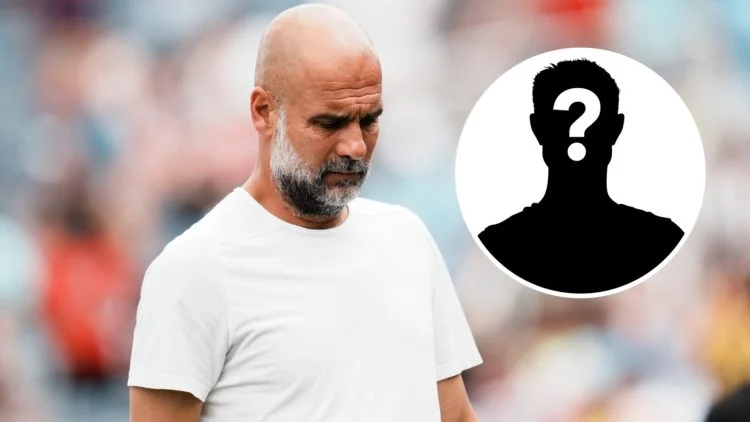Pep Guardiola publicly says ‘sorry’ to £50m Man City player for not playing him at all

The summer of 2025 has proven to be a period of intense scrutiny and strategic maneuvering for Manchester City, as Pep Guardiola navigates the complexities of managing a star-studded squad while integrating new talent and managing the delicate balance between competition and player satisfaction. The FIFA Club World Cup has served as both a showcase for the club’s depth and a revealing window into the challenges that come with managing world-class talent.
The Burden of Choice: Guardiola’s Selection Dilemmas
Managing Manchester City has never been a simple task, but the current iteration of Guardiola’s squad presents unique challenges that extend far beyond tactical considerations. With a 27-man roster brimming with international talent and players worth tens of millions of pounds, every team selection becomes a statement, every omission a potential source of controversy.
The FIFA Club World Cup has highlighted these complexities in stark detail. Guardiola’s decisions have left several high-profile players frustrated, none more so than the established stars who find themselves watching from the sidelines as newer acquisitions are given opportunities to shine. This delicate balancing act reflects the modern reality of elite football management, where financial investments, player egos, and sporting success must all be carefully calibrated.
The Spanish manager’s track record across England, Germany, and Spain has established him as one of the game’s greatest tacticians, but his current situation at Manchester City presents challenges that transcend pure footballing considerations. The depth of quality at his disposal, while enviable, creates a management headache that requires diplomatic skills as much as tactical acumen.
John Stones: The High-Profile Casualty
Perhaps no player better exemplifies the current challenges facing Guardiola than John Stones, the £50 million defender who has found himself completely sidelined during the Club World Cup campaign. Stones, who has been instrumental in Manchester City’s success over recent years, failed to feature in any game during the competition, a decision that prompted Guardiola to issue a rare public apology.
The England international’s absence from the team has been particularly notable given his historical importance to Guardiola’s system. Since joining Manchester City, Stones has evolved from a promising young defender into one of the most technically gifted center-backs in world football, perfectly embodying Guardiola’s philosophy of defenders who can contribute significantly to build-up play.
Guardiola’s public acknowledgment of the situation, delivered via Manchester City’s official website, was both diplomatic and revealing: “I’m so sorry for John [Stones] not giving him minutes but the game was so demanding. I didn’t want [to take any risks] after [Stones has been] four or five months out [through injury].”
This explanation illuminates the careful consideration that goes into every selection decision at the highest level. Stones’ injury history has been a persistent concern, with the defender managing just six Premier League starts last season due to various fitness issues. The specter of another injury setback clearly weighed heavily on Guardiola’s mind when considering whether to risk his experienced defender in what were ultimately exhibition matches.
The situation becomes more complex when considering Stones’ contractual status. With his current deal expiring next year, the 31-year-old finds himself at a career crossroads. The combination of injury concerns, limited playing time, and an expiring contract creates a perfect storm that could see one of Manchester City’s most important players of recent years depart on a free transfer in 2026.
This scenario represents a significant concern for Manchester City’s long-term planning. Stones’ quality remains unquestionable despite his fitness issues, and his departure would leave a significant void in both defensive solidity and ball-playing ability. The club’s ability to retain him will likely depend on his fitness levels in the upcoming season and Guardiola’s willingness to trust him with regular playing time.
The New Generation: Emerging Talents and Fresh Dynamics
While established players like Stones face uncertain futures, the Club World Cup has also served as a platform for showcasing Manchester City’s newest acquisitions and emerging talents. The tournament has highlighted both the promise and the challenges associated with integrating new players into an already crowded squad.
Abdukodir Khusanov represents one such example of the difficult balance Guardiola must strike. After being given a starting opportunity against Al-Ain, the defender found himself relegated to the bench for subsequent matches, illustrating how quickly fortunes can change at the highest level. Such decisions, while tactically justified, demonstrate the intense competition for places that characterizes the modern Manchester City squad.
The situation extends beyond individual cases to reflect broader themes about squad management in contemporary football. The financial resources available to clubs like Manchester City allow them to assemble squads of unprecedented depth, but this luxury comes with its own set of challenges. Keeping 27 world-class players satisfied while maintaining team harmony requires skills that extend far beyond tactical knowledge.
Rayan Cherki: The Catalyst for Change
Among the new arrivals, Rayan Cherki stands out as perhaps the most intriguing addition to Manchester City’s arsenal. The French midfielder, acquired from Lyon in a £34 million deal, represents both the present and future of the club’s creative ambitions. His arrival has been particularly significant given the ongoing speculation about Kevin De Bruyne’s long-term future and the club’s failed pursuit of Florian Wirtz, who opted for Liverpool over Manchester City.
Cherki’s early performances in the FIFA Club World Cup have provided glimpses of his potential impact. Featuring in all four of Manchester City’s matches, the 21-year-old has already demonstrated his ability to contribute at the highest level, recording one goal and one assist. These statistics, while modest, represent just the beginning of what promises to be an exciting chapter in his development.
The young Frenchman’s integration into the squad has been notable for its seamlessness. Despite the pressure of replacing a player of De Bruyne’s caliber and the expectations that come with a significant transfer fee, Cherki has appeared comfortable in Manchester City’s system. His technical ability and creative vision align perfectly with Guardiola’s philosophical approach to the game.
What makes Cherki’s arrival particularly intriguing is his stated confidence in his ability to enhance the performances of his new teammates. In a revealing interview with the Official Manchester City Magazine, the midfielder expressed his enthusiasm about the prospect of playing alongside the club’s established stars, particularly focusing on his potential partnership with Erling Haaland.
The Haaland Partnership: A New Creative Alliance
The relationship between Cherki and Erling Haaland represents one of the most fascinating aspects of Manchester City’s evolving dynamics. Haaland, despite his incredible goal-scoring record since joining from Borussia Dortmund for £51 million, endured what many considered his most challenging season at Manchester City in 2024-25. Form and fitness issues limited his impact, raising questions about his long-term development within Guardiola’s system.
However, Haaland’s performances during the FIFA Club World Cup suggested a return to his devastating best. Scoring in Manchester City’s last three games of the tournament, including the equalizer in the 4-3 defeat to Al-Hilal, the Norwegian striker appeared to have rediscovered the clinical edge that made him one of world football’s most feared forwards.
Cherki’s confidence in his ability to elevate Haaland’s game further adds an intriguing dimension to their developing partnership. The French midfielder’s comments reveal both ambition and tactical understanding: “Of course! We know that when I’m in the zone, I don’t hold back. So, I’m excited to help him score even more goals because I’m confident he’ll score plenty when I deliver the passes.”
This partnership could prove transformative for both players. Haaland’s movement in the penalty area and finishing ability complement Cherki’s creative vision and passing range perfectly. The prospect of a consistent creative supply line could help Haaland return to the goal-scoring heights that characterized his early Manchester City career.
The tactical implications of this partnership extend beyond individual performances to influence Manchester City’s overall approach. Cherki’s ability to operate between the lines and create chances from various positions could provide the unpredictability that sometimes seemed missing from Manchester City’s attacks in recent seasons.
Broader Squad Dynamics and Future Considerations
The situations involving Stones, Cherki, and Haaland reflect broader themes about Manchester City’s current trajectory and future planning. The club finds itself in a transition period, balancing the need to maintain competitiveness with the necessity of refreshing an aging squad. This process involves difficult decisions about which players to retain, which to replace, and how to integrate new talent without disrupting established hierarchies.
The financial implications of these decisions cannot be ignored. Players like Stones, despite their quality, represent significant investments that the club cannot afford to lose without adequate compensation. The prospect of losing him on a free transfer would represent both a sporting and financial setback, particularly given the current market values for defenders of his caliber.
Conversely, investments in players like Cherki represent the club’s commitment to long-term success. At 21, the French midfielder has the potential to serve as a cornerstone of Manchester City’s creative department for many years to come. His adaptation to English football and integration into Guardiola’s system will be crucial factors in determining the success of this strategic approach.
The contrast between these situations illustrates the complex calculations that modern football clubs must make. Balancing immediate needs with long-term planning, managing salary caps and Financial Fair Play regulations, and maintaining squad harmony while pursuing competitive success requires a level of strategic thinking that extends far beyond traditional football management.
The Guardiola Factor: Leadership in Transition
Pep Guardiola’s role in navigating these complexities cannot be overstated. His public apology to Stones demonstrates a leadership style that acknowledges the human element in professional football. Rather than simply making decisions and expecting acceptance, Guardiola has shown a willingness to explain his reasoning and acknowledge the disappointment his choices may cause.
This approach reflects a mature understanding of squad management that goes beyond tactical considerations. By publicly explaining his reasoning for not playing Stones, Guardiola has shown respect for the player’s contributions while also setting clear expectations about the standards required for selection.
The Spanish manager’s ability to maintain squad harmony while making difficult decisions will be crucial to Manchester City’s success in the coming season. With so many quality players competing for limited positions, his man-management skills will be tested as much as his tactical acumen.
Looking Forward: The 2025-26 Season and Beyond
As Manchester City prepares for the upcoming season, several key themes emerge from their FIFA Club World Cup experience. The need to resolve situations like Stones’ contractual uncertainty, the importance of successfully integrating new players like Cherki, and the requirement to maintain competitive standards while managing a large squad all represent significant challenges.
The partnership between Cherki and Haaland offers particular promise for the future. If the French midfielder can indeed enhance Haaland’s output while contributing his own goals and assists, Manchester City could possess one of the most potent attacking combinations in world football. The development of this partnership will be one of the most intriguing storylines to follow in the coming season.
The broader question of squad management remains paramount. Guardiola’s ability to keep all players motivated and ready when called upon will determine not just individual careers but the club’s collective success. The FIFA Club World Cup has provided valuable lessons about the challenges and opportunities that lie ahead.
As the new season approaches, Manchester City finds itself at a fascinating juncture. The combination of established quality, emerging talent, and tactical innovation under Guardiola’s guidance suggests the potential for continued success. However, the challenges of managing expectations, integrating new players, and maintaining competitive edge in an increasingly competitive landscape will test every aspect of the club’s organization.
The stories of Stones, Cherki, and Haaland represent microcosms of the broader challenges facing elite football clubs in the modern era. Success will depend not just on individual talent but on the ability to create a cohesive unit that maximizes the potential of every squad member while maintaining the standards that have made Manchester City one of world football’s dominant forces.















